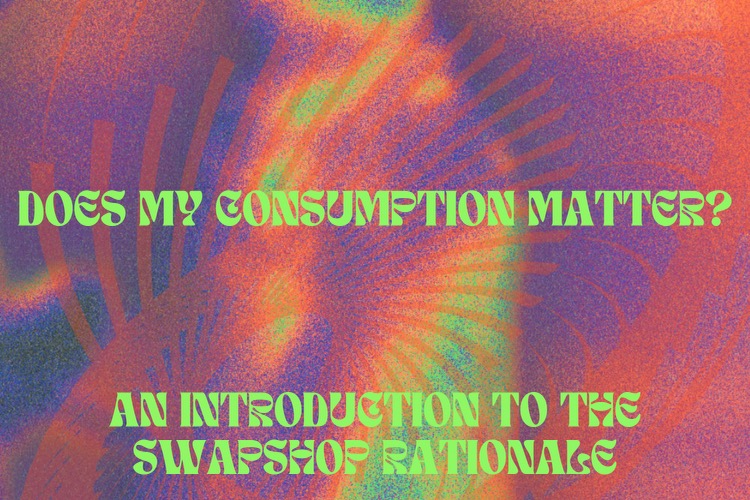What do you think?
It’s estimated in the UK that 2 tonnes of clothing are bought every minute, more than any other country in Europe. 10% of global carbon output comes from the fashion industry alone and over 20% of global waste water is generated by this industry. Generally, we consume 60% more clothing than we did 20 years ago and keep our clothes for half as long.
The fast fashion industry is extremely resource intensive, and on a planet with limited resources, unabated consumerism is a recipe for disaster. This industry in particular relies heavily on water and land. The synthetic fibres used to create these garments (polyester, acrylic, nylon) are all made using fossil fuels.
Overall, this industry is the second largest polluter of water and the third largest polluting industry globally.
By definition, fast fashion is cheap clothing produced en masse by large scale retailers in response to the latest trends. These huge fashion retailers expel trendy garments as cheaply and quickly as possible, designing them with limited durability. This drives mass consumption and causes people to value their clothing less – items can be worn a few time and discarded easily, as you know the next thing will only cost a couple of quid!
Despite all this, secondhand clothing and conscious consumerism are a great remedy to this icky situation and also a bit of craic!
If you’re not sure where to start with conscious consumerism, head down to your local charity shop. What’s better than rifling through a chazza and finding some treasure? There are also many tools out there to help you become a more conscious consumer. ‘Good on You’ is a great app where you can check if the brands you like are sticking to their sustainability policies. Depop and Vinted are brilliant for selling on and buying secondhand clothes.
It’s always important to remember that being able to shop sustainability is a massive privilege that is not afforded to everyone. So much of sustainability is about accessibility, that’s where swapshop comes in!
Swapping is free for everyone and reduces your consumption as you don’t have to buy anything new or contribute to resource use. It pushes you to reevaluate your relationships with clothing and challenge your personal style and wardrobe. If have tried a billion different ways to style it an item and it still doesn’t work for you – don’t throw it out! Pass it on to someone else who can give clothes a loving new home.
We hold our monthly swapshops in Jungle Electric on Roman Road. Come along for some fun swaps, good company and great coffee. Bring your mates, your parents, your dogs, your situationship and let’s go!

